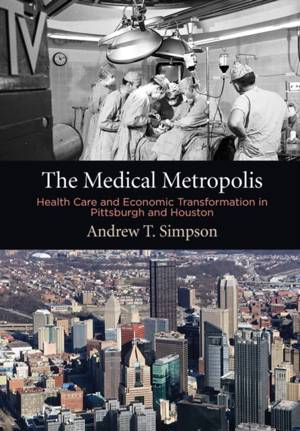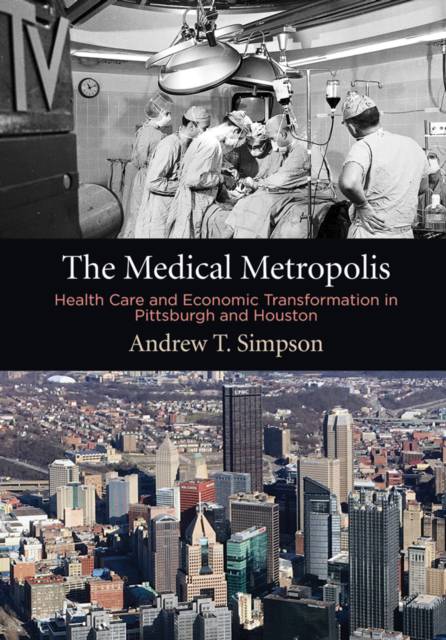
- Retrait gratuit dans votre magasin Club
- 7.000.000 titres dans notre catalogue
- Payer en toute sécurité
- Toujours un magasin près de chez vous
- Retrait gratuit dans votre magasin Club
- 7.000.000 titres dans notre catalogue
- Payer en toute sécurité
- Toujours un magasin près de chez vous
The Medical Metropolis
Health Care and Economic Transformation in Pittsburgh and Houston
Andrew T SimpsonDescription
In 2008, the University of Pittsburgh Medical Centers (UPMC) hoisted its logo atop the U.S. Steel Building in downtown Pittsburgh, symbolically declaring that the era of big steel had been replaced by the era of big medicine for this once industrial city. More than 1,200 miles to the south, a similar sense of optimism pervaded the public discourse around the relationship between health care and the future of Houston's economy. While traditional Texas industries like oil and natural gas still played a critical role, the presence of the massive Texas Medical Center, billed as "the largest medical complex in the world," had helped to rebrand the city as a site for biomedical innovation and ensured its stability during the financial crisis of the mid-2000s.
Taking Pittsburgh and Houston as case studies, The Medical Metropolis offers the first comparative, historical account of how big medicine transformed American cities in the postindustrial era. Andrew T. Simpson explores how the hospital-civic relationship, in which medical centers embraced a business-oriented model, remade the deindustrialized city into the "medical metropolis." From the 1940s to the present, the changing business of American health care reshaped American cities into sites for cutting-edge biomedical and clinical research, medical education, and innovative health business practices. This transformation relied on local policy and economic decisions as well as broad and homogenizing national forces, including HMOs, biotechnology programs, and hospital privatization. Today, the medical metropolis is considered by some as a triumph of innovation and revitalization and by others as a symbol of the excesses of capitalism and the inequality still pervading American society.Spécifications
Parties prenantes
- Auteur(s) :
- Editeur:
Contenu
- Nombre de pages :
- 288
- Langue:
- Anglais
- Collection :
Caractéristiques
- EAN:
- 9780812251678
- Date de parution :
- 01-11-19
- Format:
- Livre relié
- Format numérique:
- Genaaid
- Dimensions :
- 160 mm x 234 mm
- Poids :
- 566 g







